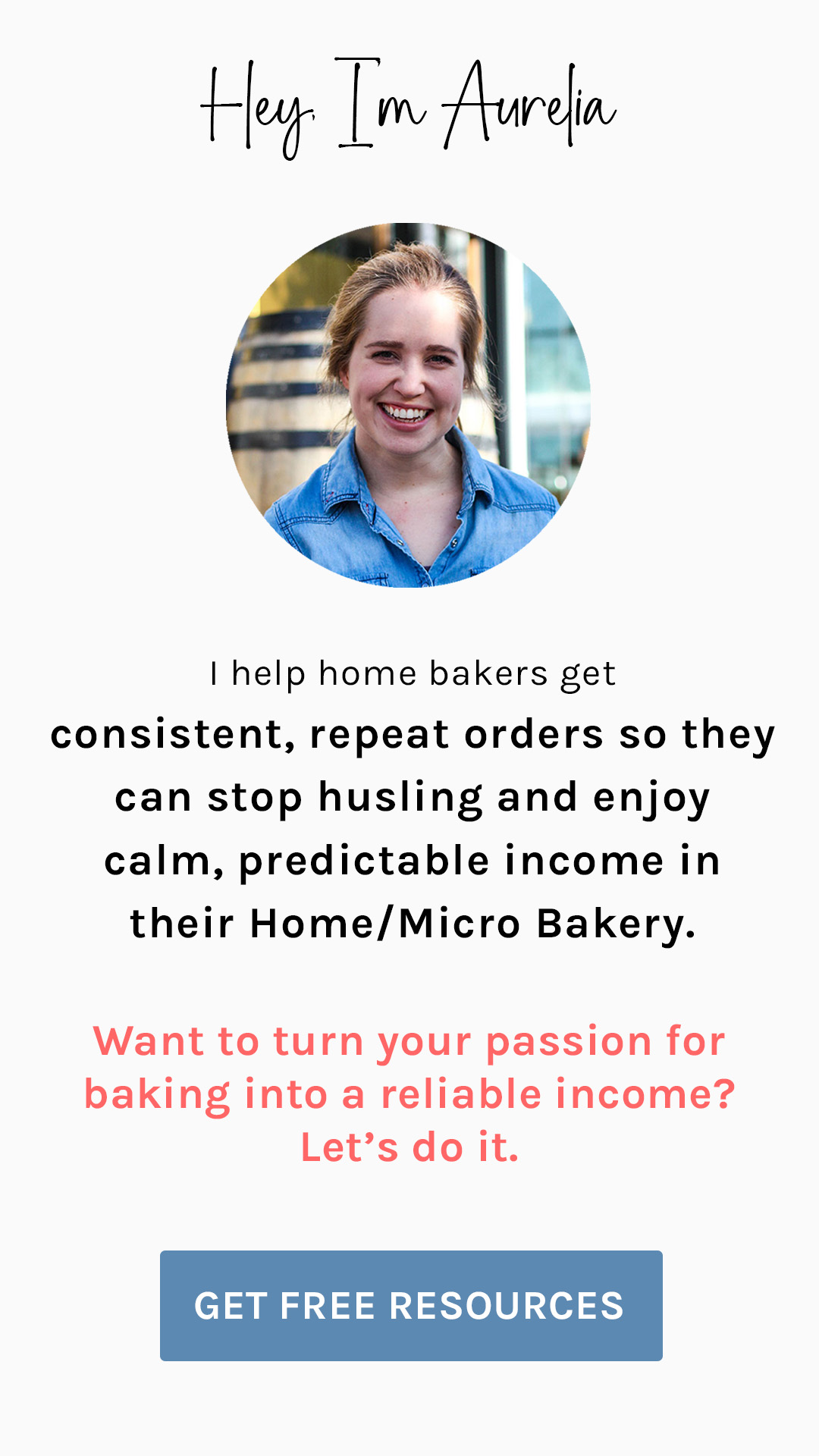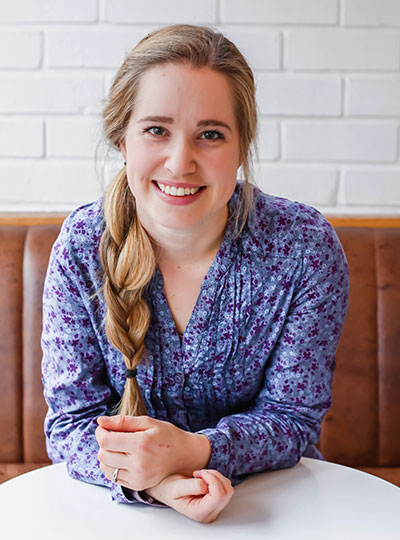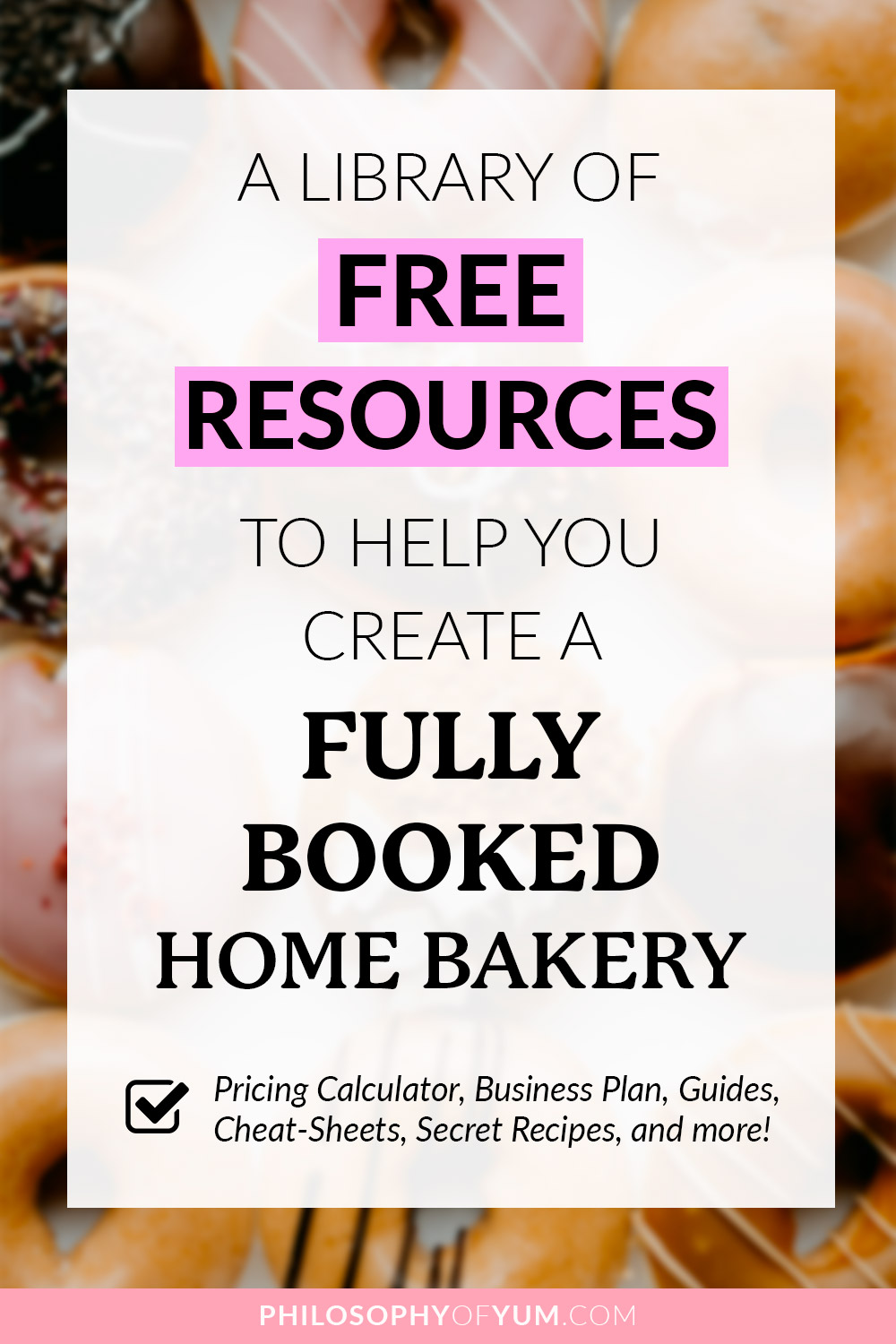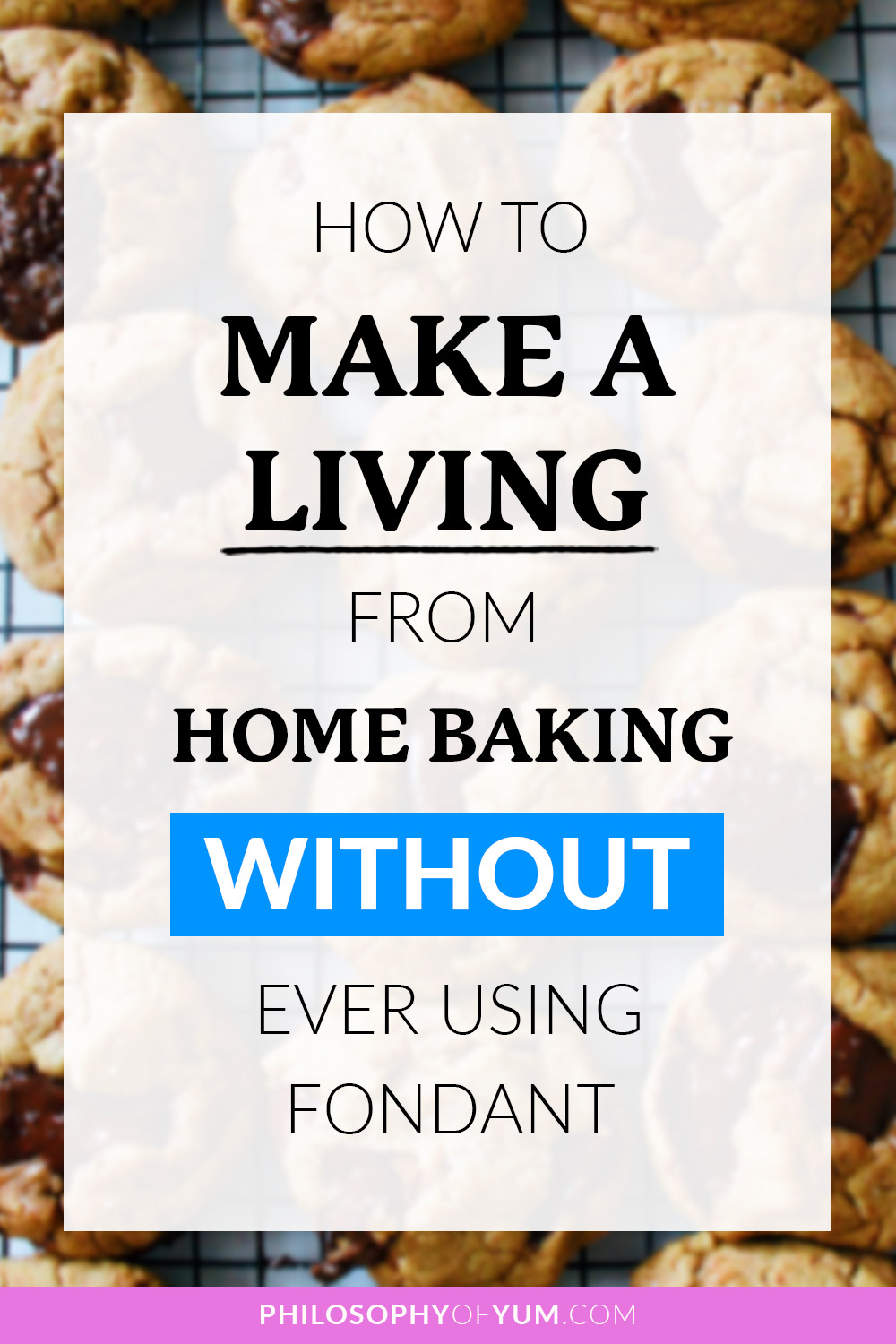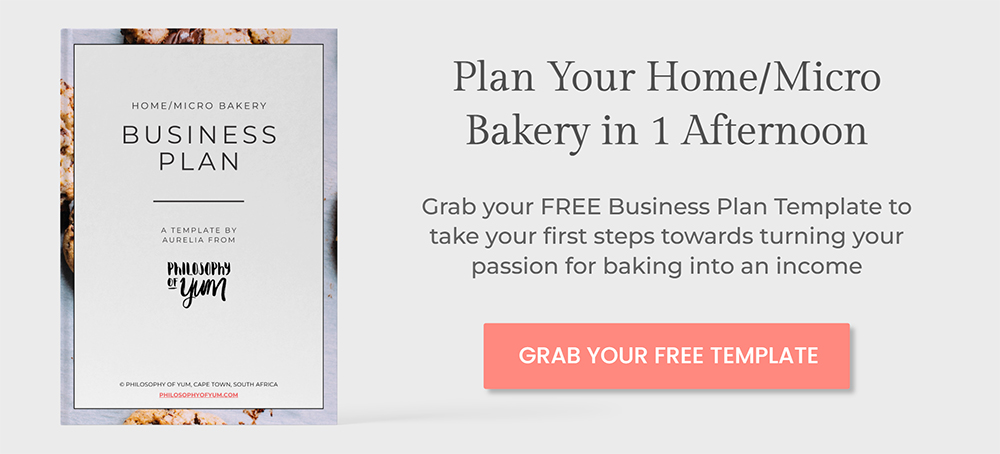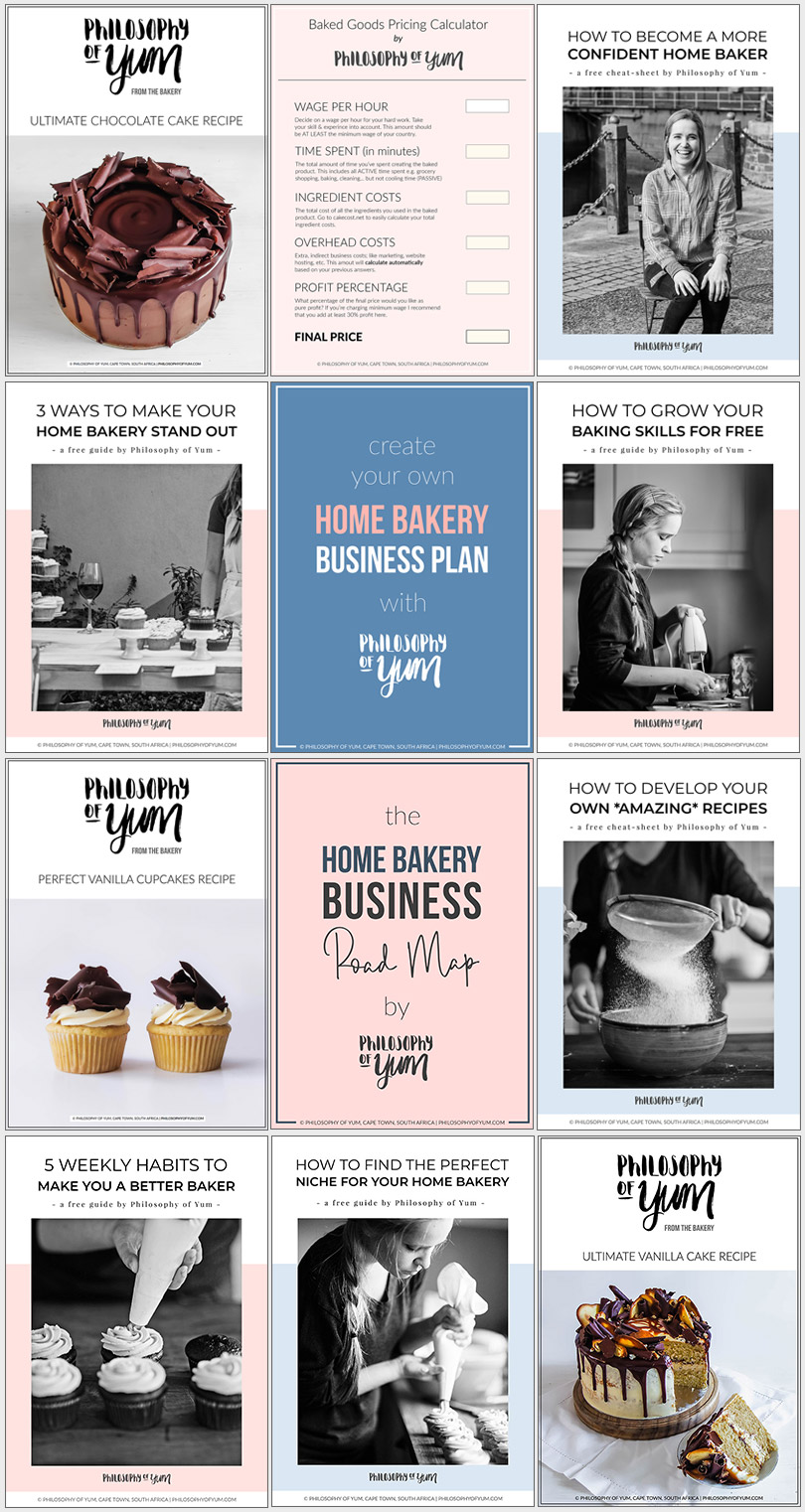Do you need a license to sell baked goods from home?
Hey! Important note: The Home/Micro Bakery licensing process varies in each country AND in each state/province around the world.
I’ve been helping home bakers (mostly from the USA, but all over the world) create Home/Micro Bakeries with consistent orders since 2018.
We’ve never run into a situation where a home baker has no option to sell anything in any way to anyone.
In many cases, they limit WHAT you may bake and HOW you may sell it. But they hardly ever forbid it entirely. If there’s one thing I can tell you for sure, it’s that you’ve always got options to MAKE it work!
This post will give you an overview of the process, but you’ll also need to take responsibility to double-check the Cottage Food Laws in your country (you’ll get many resources in this post to get you started!).
My goal is to put your mind at ease, and show you that getting your Home Bakery licensed and legal isn’t actually that complex! You’re gonna be just fine, I promise 🙂
Why You Need a Home/Micro Bakery License
If you live in the USA, it’s important to note that every state and city/town has its own Cottage Food Laws!
But lucky for you, The Institute for Justice spells out the laws of each state on their site (it’s super thorough and they break it all down) >> click here to check it out.
At this point, ALL 50 STATES allow direct sales.
This is freakin’ FANTASTIC news! Because it means that once you’ve got your license, you can sell directly to anyone.
Some states don’t allow wholesale baking (baking for coffee shops, restaurants, or anyone else that resells your baking) or online orders (selling through a website).
BUT direct sales include:
… selling to friends, family, colleagues, etc.
… selling to offices, bnbs, and hotels (It’s legal because they don’t resell your baking! They’re the best repeat clients ever. My free email course, Repeat Order Ready, goes deeper into how to get repeat clients like these).
… selling directly to customers at food/farmers’ markets (mostly legal, but double check your Cottage Food Laws).
In South Africa (where I live) they won’t really hunt you down and fine you if you do not have the correct documentation – we are a third-world country after all. In other countries, they might fine you though.
The main reason for getting a home bakery business license and certificate is that it’s ETHICAL and LEGAL. I wouldn’t want to bake goods for the public in my kitchen if I knew something wasn’t up to scratch. Would you?
The municipal standards for health and safety are there to protect us and our clients.
Most food markets also ask for your Home Bakery license before you’re allowed to sell there. If you don’t have it and an inspector decides to pay a visit to the food market, both you and the food market owners could get into a lot of trouble – a severe fine or even being shut down. Whoops!
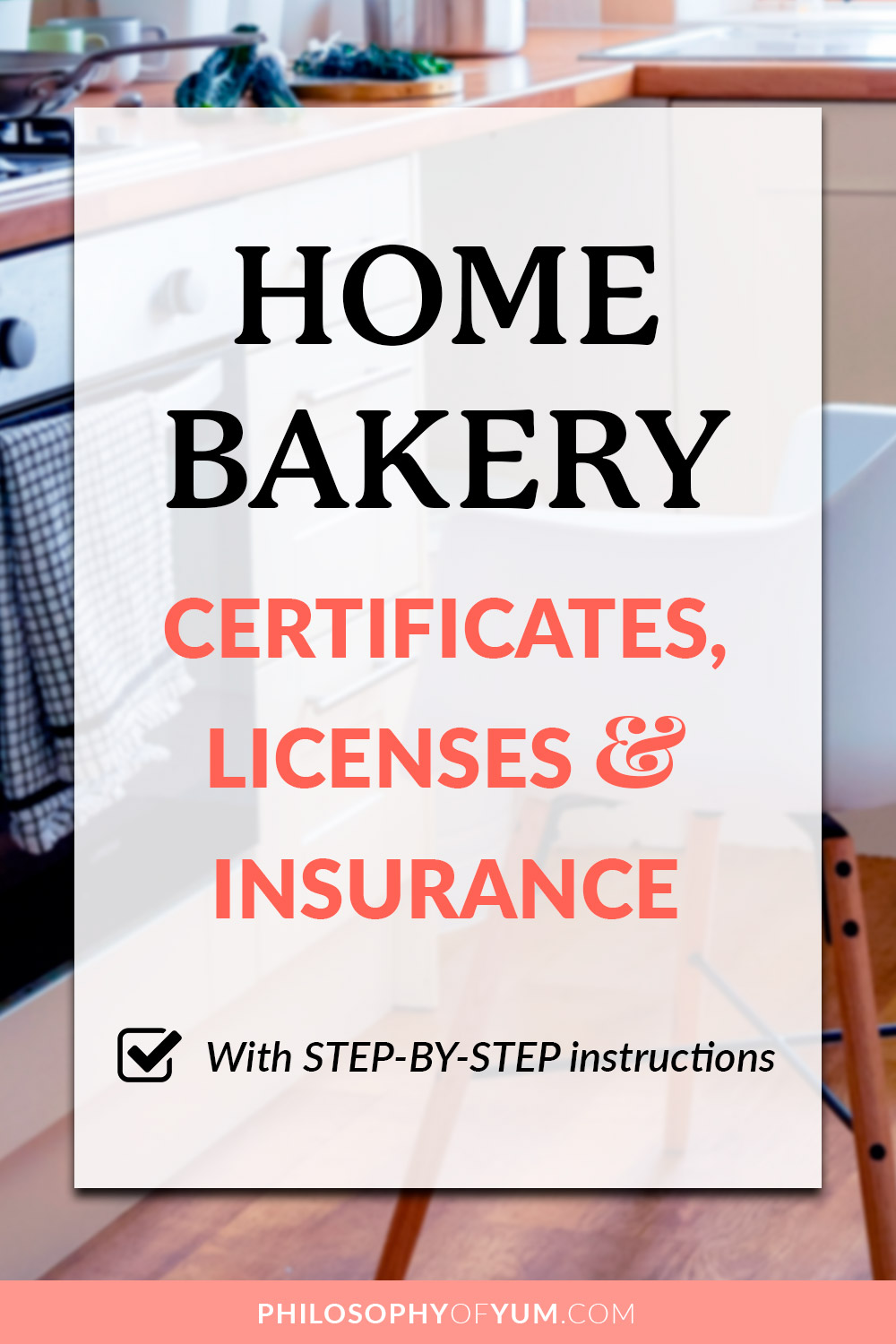
Certificate & License Required for Home Bakery
Home/Micro Bakeries typically need to apply for 2 different documents.
A Certificate of Acceptability (Name Might Vary) from the Health Department:
This certificate refers to the condition of your food preparation facilities, in other words your home’s kitchen. An environmental health and safety officer will visit your home to inspect your kitchen and bathroom facilities.
They typically look out for the following criteria:
- They’ll naturally expect a very clean kitchen, so clean your entire kitchen, from top to bottom. Remember to clean inside your fridge and cupboards as well.
- Kitchen counter tops are non–porous. This means that they don’t absorb any substances during food preparation. For this reason, your countertops should always be treated to be waterproof. They don’t have to be stainless steel, they should just be waterproof. If they are not waterproof, they will absorb food and become infested with bacteria. Not cool.
- Adequate washing facilities. You don’t need a massive dishwasher or 3 sinks. They just check that you have running hot and cold water and at least 1 basin – preferably 2 though.
- Bathroom facilities– quite obvious I guess. It is important that you have a bathroom for staff to use away from the kitchen.
- Adequate storage and packaging. You should have airtight containers to store baked goods in overnight and also for transportation to restaurants and food markets. When it comes to packaging, the standard cake boxes from a packaging store are totally fine.
- Adequate refrigeration. Sometimes they’ll check to see how cold your fridge is. It should be 4°C/40°F or lower.
- Hairnets and Aprons– also quite obvious. Also have plastic, non-latex gloves for handling your bakes when packaging them.
Some countries require you to label and weigh all your baked goods. Don’t let this intimidate you. Print out stickers for all your products. You can create pretty designs for free on Canva.
You don’t need to buy those super expensive electronic food scales to weigh your bakes. Just use an affordable digital kitchen scale. It’s the best $15 – $20 you’ll ever spend!
If you have large cakes you need to weigh that don’t fit on the scale, just place a small chopping board on top of the scale first and then you can add the cake on top of that. This way it will fit onto the scale and you’ll be able to weigh it accurately.

Hawking in Meals Business License:
This license refers to producing goods on one premises and transporting them to a different premises to be sold there. This is typically what Home Bakeries do, since we don’t have a restaurant or café at our own homes.
Whether you supply goods to restaurants, cafes or delis or sell your goods at food markets, this is a license you really need to do so LEGALLY.
The same Environmental Health and Safety Officer will ask to see your food transportation containers. They should be airtight and watertight with lids.
An Inspector may also visit you at any food market you do. There are also some additional criteria you will have to meet if you plan to prepare bakes at the food market itself and not at home. You can download all the additional guidelines for informal food trading.
RELATED: How to Create a Home Bakery Business Plan
Applying for Home/Micro Bakery License
- Use Google to find your city’s main Municipal Office. Phone them and ask to speak to someone in the Environmental Health and Safety Department. Explain the nature of your business (*important* Tell them you won’t be working with meat at all!) and ask them what licenses and certificates you will need to apply for.
- Decide which day you want to go to your municipal offices. Be sure to double check their office hours – in South Africa they are only open for like 5 hours a day! Take your Identification Document along and a black pen.
- When you arrive at the Municipality Building, ask staff to direct you to the Environmental Health and Safety Department.
- Wait in line – yay. When it’s your turn, explain the nature of your business clearly so that they can give you the correct application forms.
- Complete the forms and pay the fee. In some countries & states it’s not too expensive, but in others it will cost more. But think of this in terms of investment. Getting this license will ENABLE you to make money from your baking. Thus, the license will essentially pay for itself and so much more!
- The Environmental Health and Safety Department will the contact your closest Environmental Health and Safety Office. They will then contact you somewhere in the next 2 weeks to set up an appointment for inspection.
- Make sure your home is nice and clean and all your pets are outside during the inspection. Be friendly and show the official your kitchen and bathroom facilities. Be available so that you can answer any questions they may have Also have your hairnet and apron on standby so that you can show them to the official. Once they are satisfied they will leave.
- The environmental health and safety office issues your Home Bakery certificate and license. The Municipality will phone you to come and collect it, but they also offer to post it to you if you live far out of town. The whole process takes about 2 – 4 weeks from start to finish.
Note that the Home Bakery Certificate and License are linked to your specific baking premises (your home). If you move house you will need to apply for these documents all over again.
I scanned my Home Bakery Certificate and License the moment I receive them. It’s always handy to have them on file in case the physical copies get lost! Which tends to happen in our home… to MANY official documents… like our marriage certificate!

Home Bakery Business Registration
It is not compulsory to register your Home Bakery’s name if you are a sole proprietor. Sole proprietor simply means that you (1 person) are the exclusive owner of your business. If you bake from home you are a sole proprietor by default until you decide to register your business as a CC, LLC, etc.
Some countries and states will require you to register your business as an LLC or Pty (Ltd) before you are allowed to start selling your baking.
You’ll need to do some research to find out how things work in your country and province/state.
Home Bakery Insurance
This also varies greatly from county to country. I’m aware that folks in the USA sue people for almost anything if they have the power to do so. In South Africa we can’t really be bothered.
I don’t believe insurance is necessary for a Home Bakery – no matter what country you live in. If you are worried that someone may sue you because they had an allergic reaction to your bakes, then include a thorough disclaimer on your Home Bakery’s website or Facebook page.
You can check out my Home Bakery’s disclaimer. Just copy it and sub in your own Home Bakery’s Name and details where applicable.
Obviously you should have household insurance to protect your entire home against theft, fires or floods. All your home bakery equipment will automatically be included in that. One of the many perks of baking from home!
RELATED: How to Create a Home Bakery Business Plan
And that’s it my friend! Please let me know if you have any other questions by commenting below. I’ll be more than happy to help.
Chat soon
Aurelia 🙂

